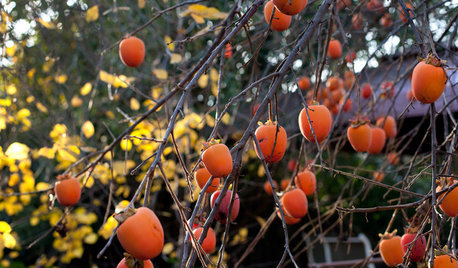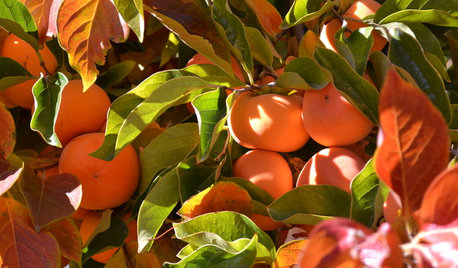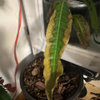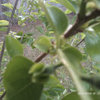How do you ripen persimmon?
fruitnut Z7 4500ft SW TX
14 years ago
Related Stories

EDIBLE GARDENSGreat Design Plant: Persimmon
Combining beautiful fruit, vivid fall leaves and low maintenance, this tree is a winner in the garden
Full Story
FRUIT TREESHow to Grow Your Own Persimmons
Sturdy and easy to care for, these trees offer bright fruit through winter — and keeping them in bounds is no sweat
Full Story
DECORATING GUIDESHow to Make Beautifully Untamed Floral Arrangements
See how you can create your own floral feast for the holidays or any day
Full Story
EDIBLE GARDENSHow to Grow 10 Favorite Fruit Trees at Home
Plant a mini orchard in fall, winter or early spring to enjoy fresh-off-the-tree fruit the following year
Full Story
LANDSCAPE DESIGNRecipe for Asian Edible Garden Style
A surprising number of food plants are hiding out in Asian-themed landscapes. Add a few more and extend the Zen flavor to the kitchen
Full Story
EDIBLE GARDENSSummer Crops: How to Grow Tomatoes
Plant tomato seedlings in spring for one of the best tastes of summer, fresh from your backyard
Full Story
FALL GARDENING11 Trees for Brilliant Fall Color
Give your landscape the quintessential look of autumn with the red, orange and yellow leaves of these standouts
Full Story
LANDSCAPE DESIGNFlood-Tolerant Native Trees for Soggy Soil
Swampy sites, floodplains, even standing water ... if you've got a soggy landscape, these trees are for you
Full Story
GARDENING AND LANDSCAPINGWorld of Design: 10 Home Gardeners Show Us Their Sweet Summer Harvests
From New York to Tokyo, these gardeners have turned their yards, terraces and rooftops into places of bounty
Full Story







jellyman
denninmi
Related Professionals
Derry Landscape Architects & Landscape Designers · Fairfield Landscape Contractors · Lake Worth Landscape Contractors · Long Beach Landscape Contractors · Mequon Landscape Contractors · Milton Landscape Contractors · North Richland Hills Landscape Contractors · Northport Landscape Contractors · Nutley Landscape Contractors · Roswell Landscape Contractors · Tehachapi Landscape Contractors · Watertown Landscape Contractors · West Chester Landscape Contractors · Wheat Ridge Landscape Contractors · York Landscape Contractorsjellyman
fruitnut Z7 4500ft SW TXOriginal Author
scaper_austin
creekweb
water0125